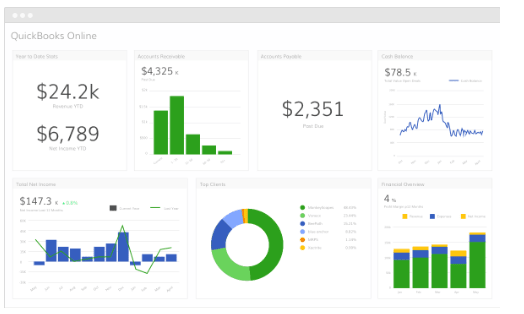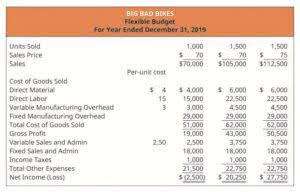
Accurate and organized records make responding to audits and inquiries from tax authorities or regulatory bodies easier. Shoeboxed has a mileage tracking feature that logs business trips so you can claim mileage deductions. The plugin categorizes expenses from email receipts to track and organize all business expenses. All digitized business cards are stored in a central cloud-based database, making contact information accessible anywhere. Then, you can focus on the areas that need work to make the firm as efficient as possible. The most efficient firm will have the lowest expenses and highest profit, which is the only way to business growth.
- One of its standout features is the client portal, which provides a secure space for clients to view invoices, track the progress of their cases, and make payments online.
- It goes without saying that legal accounting plays a pivotal role for a law firm; it ensures financial integrity, compliance, and efficiency when done well and can jeopardize a firm’s success and reputation when done poorly.
- These costs should be recorded as capitalized expenses until the case is resolved.
- MyCase Accounting is a built-in legal accounting solution that works within your case management system, automating three-way trust reconciliations, business intelligence, expense tracking, and other financial processes.
- By using sound bookkeeping practices to keep accurate records and consistently review the firm’s financial statements on a monthly or weekly basis, you’ll see your firm’s true financial picture.
What are the best practices for law firm accounting?

Many lawyers are required to law firm accounting services set up Interest on Lawyer Trust (IOLTA) accounts depending on the state they operate in. Interest earned on IOLTA accounts is sent directly to local Bar Associations to support charitable legal services. Perform regular reconciliations to verify that trust account balances match client ledger balances.
Interest in Lawyers Trust Accounts (IOLTA)

She is also experienced in setting up corporations with the State Corporation Commission and the IRS. If you have trust accounts in your firm, you must do a three-way reconciliation every days. The one on the trust account ledger is the total of the individual client’s ledgers and the bank statement for the trust. While legal accounting is a bit more complicated, you can do a few things to make the accounting process for law firms as painless as possible.
- Some accounts will be marked “locked” because they are linked to the front-end billing processes.
- From simple time-tracking tools to comprehensive, all-in-one practice management solutions, there’s a software solution for every type of firm.
- Legal billing software should allow you to create different templates for different types of work, from hourly billing for complex litigation cases to flat-rate fees for more straightforward matters.
- It offers comprehensive billing features integrated within its broader case and document management system.
- End-of-year taxes for law firms face complex requirements which, if not adhered to, can lead to financial or legal consequences for your practice.
- Clio’s billing tools are designed to automate many aspects of the invoicing process, making it easier for law firms to generate accurate invoices quickly.
Mastering the Ledger: The Crucial Role of Effective Bookkeeping for Law Firms
It integrates unearned revenue with major accounting platforms like QuickBooks and Xero, making it a great solution for firms looking for a simple yet effective billing tool. Clio is widely regarded as one of the best legal practice management platforms available. It offers comprehensive billing features integrated within its broader case and document management system.

Trust Accounting 101 for Law Firms

Some jurisdictions may require you to complete financial reporting periodically. For example, monthly reporting can help your firm get a snapshot of your firm’s overall health to help guide financial decisions each month. However, cash accounting may not accurately reflect your finances since it does not account for accounts receivable or payable. For example, you may appear to have more cash than you have if outstanding payments are owed to vendors.

As an attorney, you may be aware of state bar requirements for trust accounts, but that doesn’t prevent you make mistakes. The most common mistakes are putting funds in the wrong account, accidentally or intentionally withdrawing funds, fail to report monthly, and so on. Poor management of trust accounts can lead to penalties, suspension, or even losing the right to practice law. Missed payments, misclassified revenue, or neglected deductions can lead to penalties, IRS scrutiny, and unnecessary financial stress. Interestingly, tax deductions can ease the burden when used correctly—yet not all lawyers are up-to-date on their tax deductions. Many lawyers go to one or the other extreme—they either claim everything (and possibly more than they’re allowed to), or they’re so afraid to overstep they miss out on tax deductions.
- Shoeboxed allows you to export contact information to various CRM systems so all your business contacts are organized and accessible within your preferred customer relationship management tools.
- As your firm becomes more complex, you may need more customized features, such as specific billing rules, reporting structures, or integration with additional tools.
- A chart of accounts is a list of all your firm’s financial accounts, usually used by an accountant and available for bookkeepers.
- Legal bookkeeping takes place before any accounting can occur and is an important administrative task for any law firm.
- Successful law firms know everything about their money, from where it came from to where it will go.
Choosing the Right Accounting Software
Making the jump from an attorney to running a law firm can bring a ton of new intimidating challenges. Legal accounting and attorney bookkeeping are surely one of the largest you face. An attorney is required to reconcile their trust bank statement to their client’s individual balance on a quarterly, or even monthly basis. While the reconciliation process is one of the most important rules in trust account management, attorneys most often Car Dealership Accounting fail to properly perform this step on a regular basis, which causes unfortunate consequences. Conversely, cash basis accounting recognizes revenue when you’re paid (i.e., when the cash is received) and expenses when they’re paid.
